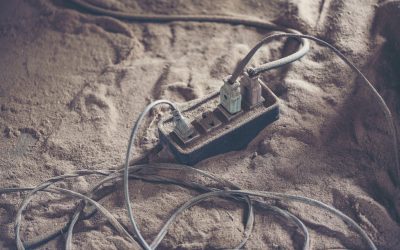As summer approaches, boating enthusiasts eagerly anticipate the chance to enjoy the open waters. However, it’s crucial to remember that safety should always come first. Understanding and following boating safety rules can ensure a fun and incident-free experience for everyone on board. In this comprehensive guide, we will explore the essential boating safety rules and regulations, especially tailored for summer activities.
The Importance of Boating Safety Rules
Boating safety rules are designed to protect everyone on the water. They help prevent accidents, reduce the risk of injury, and ensure that boating remains a safe and enjoyable activity. Following these rules is not just about compliance; it’s about safeguarding lives and preserving the beauty of our waterways.
Key Boating Safety Rules
1. Wear a Life Jacket
-
- Every person on board should wear a life jacket at all times. Life jackets are the most important piece of safety equipment on a boat. They can save lives by keeping individuals afloat if they fall overboard or in the event of a capsizing.
2. Understand and Follow Navigation Rules
-
- Boating has its own set of “rules of the road” known as navigation rules. These guidelines dictate how vessels should interact on the water, including who has the right of way, how to overtake another vessel, and how to navigate in crowded areas.
3. Avoid Alcohol Consumption
-
- Operating a boat under the influence of alcohol is illegal and extremely dangerous. Alcohol impairs judgment, balance, and reaction times, increasing the risk of accidents. Boating under the influence (BUI) can lead to severe penalties, including fines and imprisonment.
4. Check Weather Conditions
-
- Always check the weather forecast before heading out. Sudden storms can turn a pleasant day on the water into a hazardous situation. If the weather looks questionable, it’s best to stay onshore.
5. Perform Regular Safety Checks
-
- Ensure your boat is in good working condition. Check the engine, fuel levels, batteries, and safety equipment before every trip. Having a well-maintained boat reduces the likelihood of mechanical failures on the water.
6. Carry Essential Safety Equipment
-
- Equip your boat with necessary safety gear such as fire extinguishers, flares, first aid kits, and a VHF radio. These items can be crucial in an emergency situation.
7. Take a Boating Safety Course
-
- Enroll in a boating safety course to learn the fundamentals of boating safety, navigation, and emergency procedures. Many states and provinces require boat operators to have completed a safety course.
Boating Safety Regulations
Boating safety regulations vary by location, but there are common requirements that apply universally. These regulations are enforced to ensure that all boaters adhere to safety standards.
Licensing and Registration
In most places, boaters must register their vessels and obtain a boating license. The requirements for registration and licensing can vary, so it’s important to check with local authorities.
Age Restrictions
Many regions have age restrictions for operating different types of boats. Younger operators may need to be accompanied by an adult or have completed a boating safety course.
Mandatory Equipment
Boats must be equipped with specific safety gear. This includes life jackets for all passengers, fire extinguishers, sound-producing devices (like a horn or whistle), visual distress signals (flares), and navigation lights.
Environmental Regulations
Boat operators must adhere to environmental regulations to protect water quality and marine life. This includes proper disposal of waste, fuel management, and avoiding damage to sensitive areas like coral reefs and wetlands.
Summer Boating Safety Tips
Summer is a popular time for boating, but it also comes with unique challenges. Here are some additional tips to keep in mind during the summer months:
1. Stay Hydrated and Sun-Protected
-
- Dehydration and sunburn are common issues during summer boating trips. Drink plenty of water, wear sunscreen, and use protective clothing like hats and sunglasses.
2. Be Mindful of Crowded Waters
-
- Summer often means busier waterways. Be extra cautious in crowded areas and maintain a safe distance from other boats, swimmers, and watercraft.
3. Avoid Overloading the Boat
-
- Boats have weight limits for a reason. Overloading can affect the boat’s stability and increase the risk of capsizing. Distribute weight evenly and do not exceed the recommended capacity.
4. Watch for Swimmers and Water Sports Enthusiasts
-
- Stay vigilant for people swimming or engaging in water sports. Slow down in areas where these activities are common and keep a lookout for anyone in the water.
5. Practice Good Etiquette
-
- Be courteous to other boaters. Avoid creating excessive wake in no-wake zones, respect fishing areas, and follow all posted signs and markers.
Emergency Preparedness
Even with the best preparation, emergencies can still happen. Being ready to handle emergencies can make a significant difference in outcomes.
Man Overboard
If someone falls overboard, immediately throw a life buoy or floatation device. Turn the boat around carefully and approach the person from downwind. Use a boat hook or reach to assist them back on board.
Engine Failure
If your engine fails, drop anchor to prevent drifting. Use your VHF radio to call for assistance and signal nearby boats using visual distress signals.
Fire Onboard
In case of a fire, alert everyone on board and move them away from the fire source. Use a fire extinguisher to tackle the flames and call for help using your VHF radio.
Boating is a delightful way to enjoy summer, but it comes with responsibilities. By following boating safety rules and adhering to regulations, you can ensure a safe and enjoyable experience on the water. Remember, safety is everyone’s responsibility. Whether you’re a seasoned boater or a newcomer, prioritizing safety will help you make the most of your time on the water.




